Understanding fractions Worksheets for 6-Year-Olds
50 filtered results
-
From - To
Introducing our "Understanding Fractions Worksheets for 6-Year-Olds," designed to make learning fractions simple and fun! These engaging, colorful worksheets use visual aids and practical problems to help young learners grasp the basic concepts of fractions, such as halves, thirds, and quarters. Perfect for classroom or home use, they blend education with playful exercises, ensuring that children develop a strong foundation in math. Tailored for early learners, each worksheet promotes interactive learning, critical thinking, and confidence in using fractions. Empower your child with essential fraction skills using our expertly crafted learning resources.
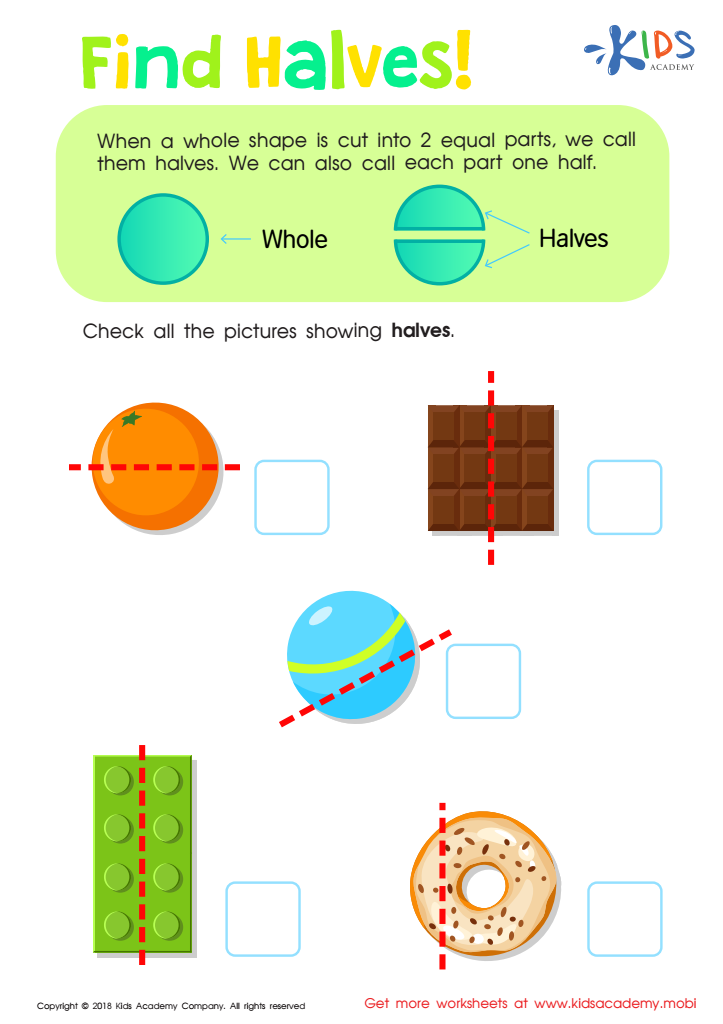

Find Halves Worksheet
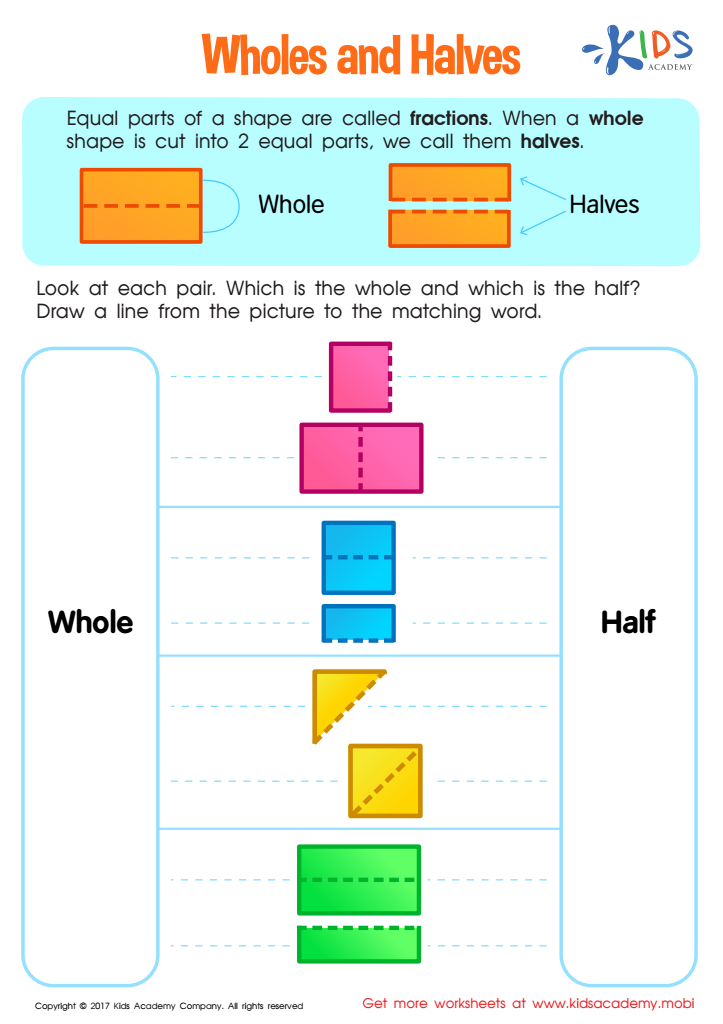

Wholes and Halves Worksheet
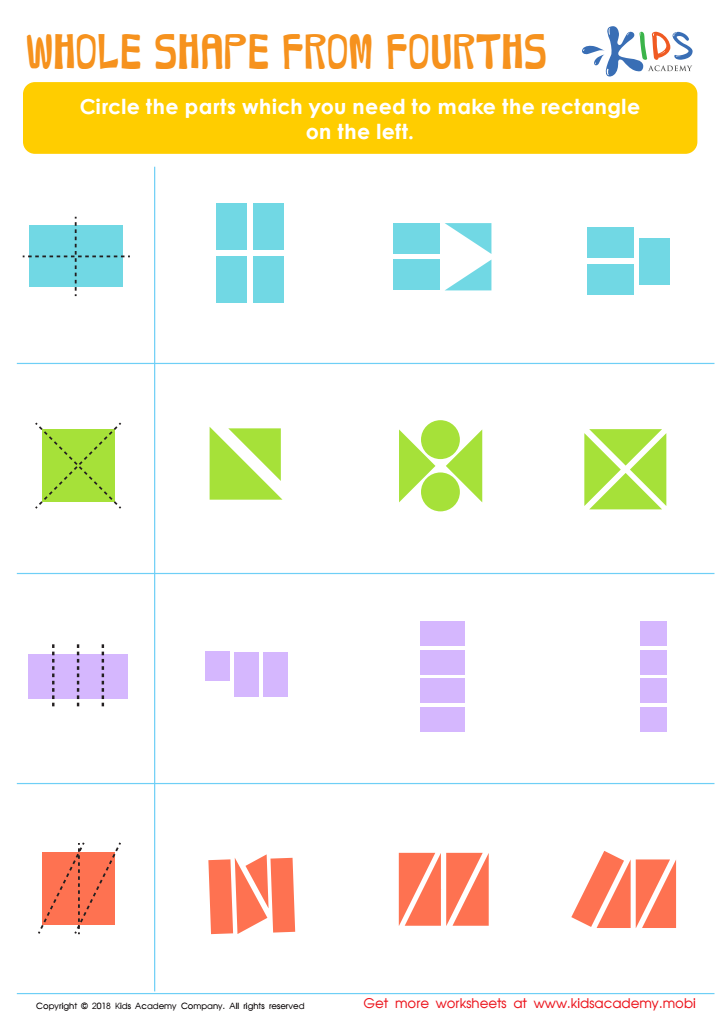

Whole Shape from Fourths Worksheet
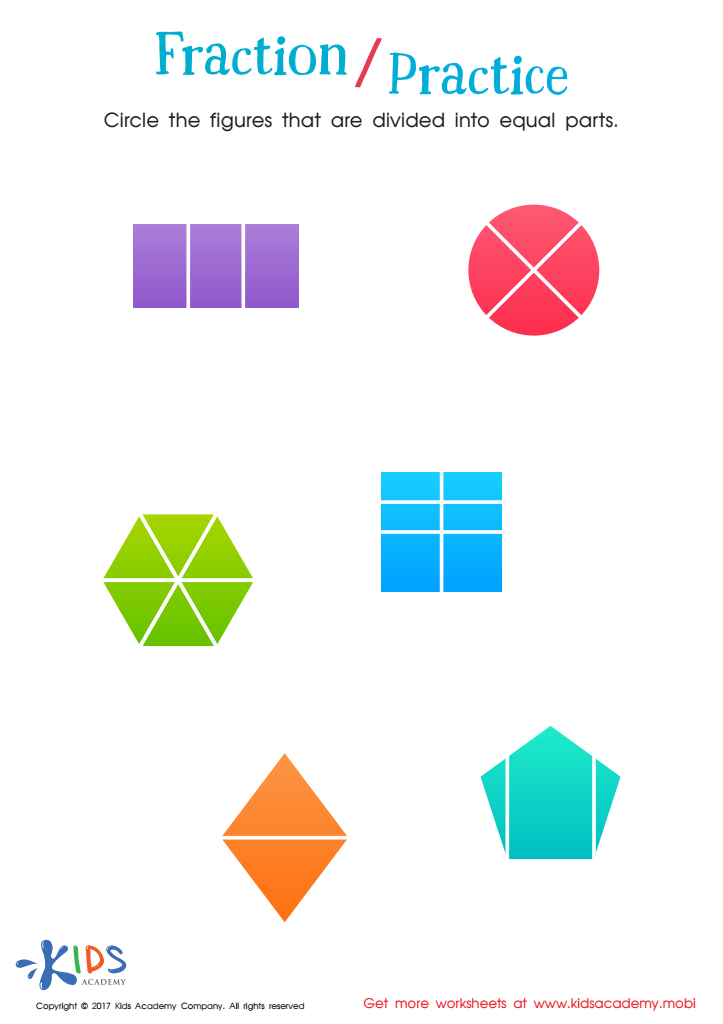

Fractions: Shapes Worksheet
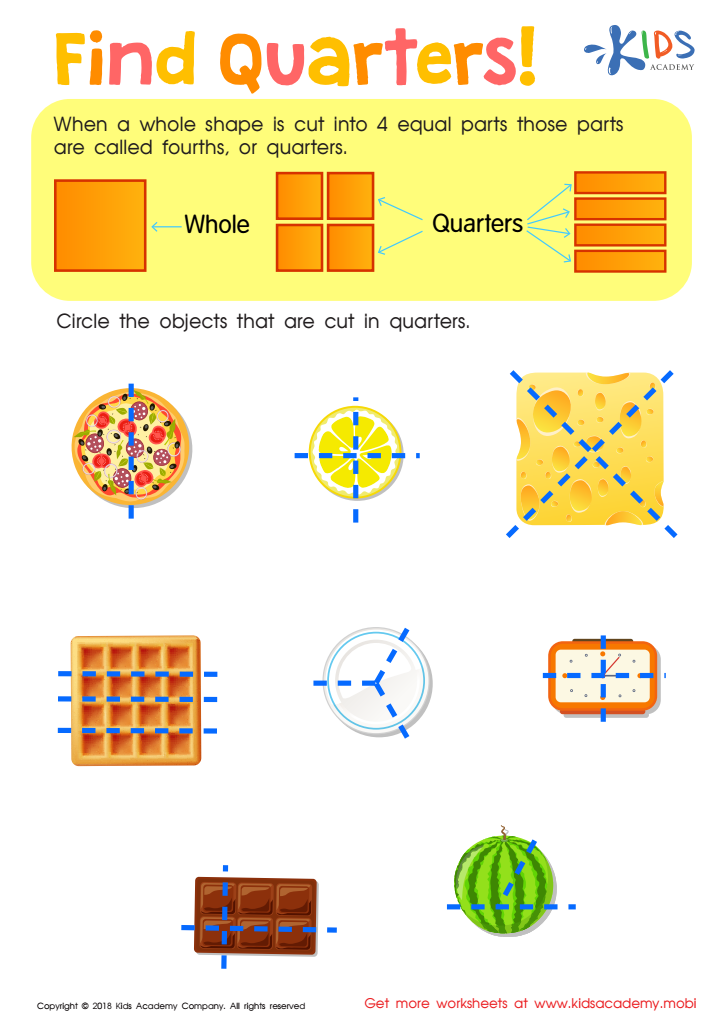

Find Quarters Worksheet
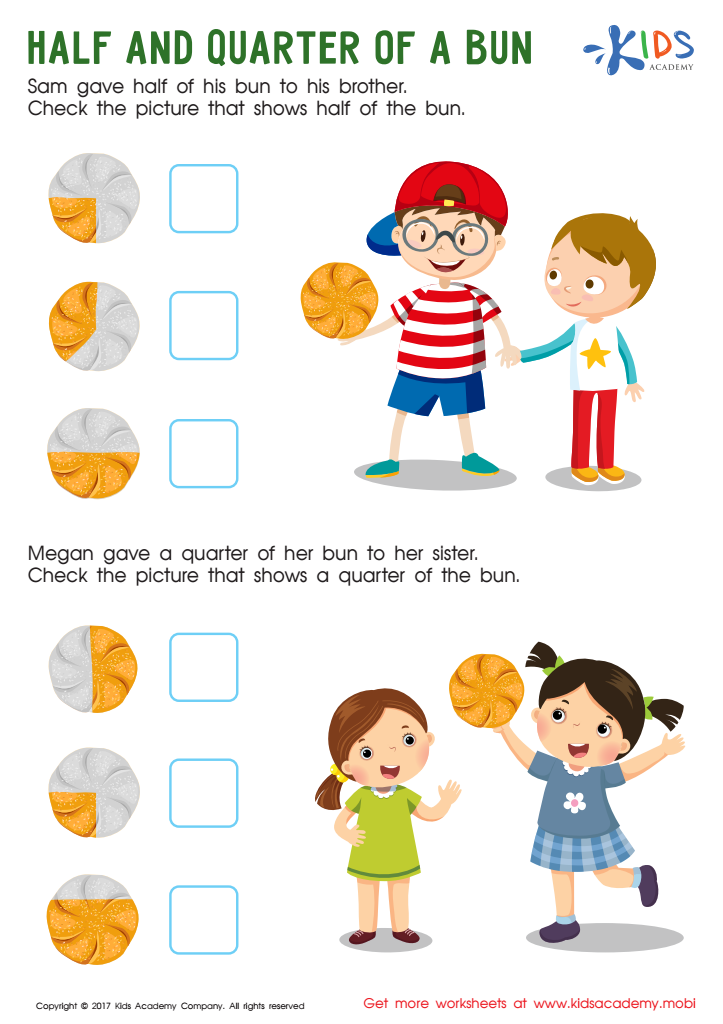

Half and Quarter of a Bun Worksheet
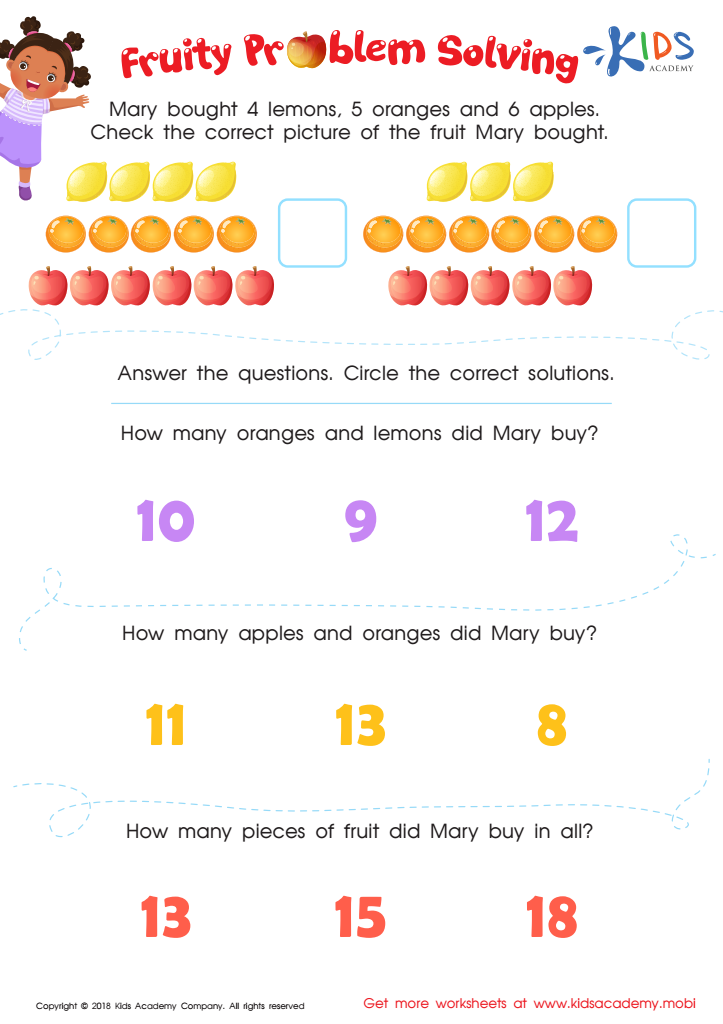

Fruity Problem Solving Worksheet
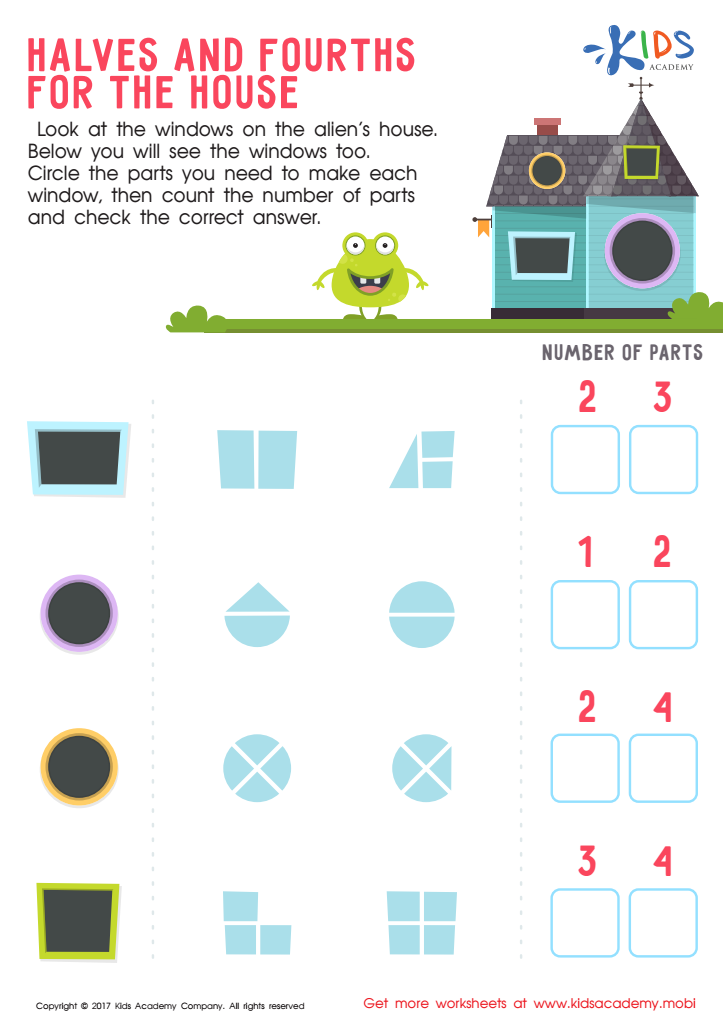

Halves and Fourths for the House Worksheet
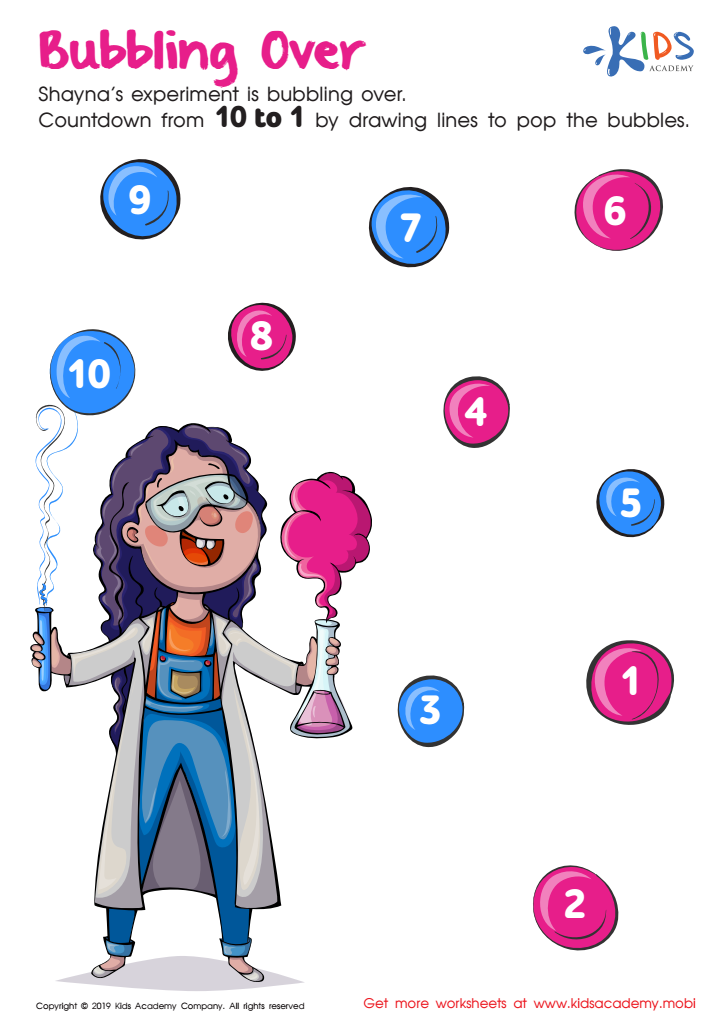

Bubbling Over Worksheet
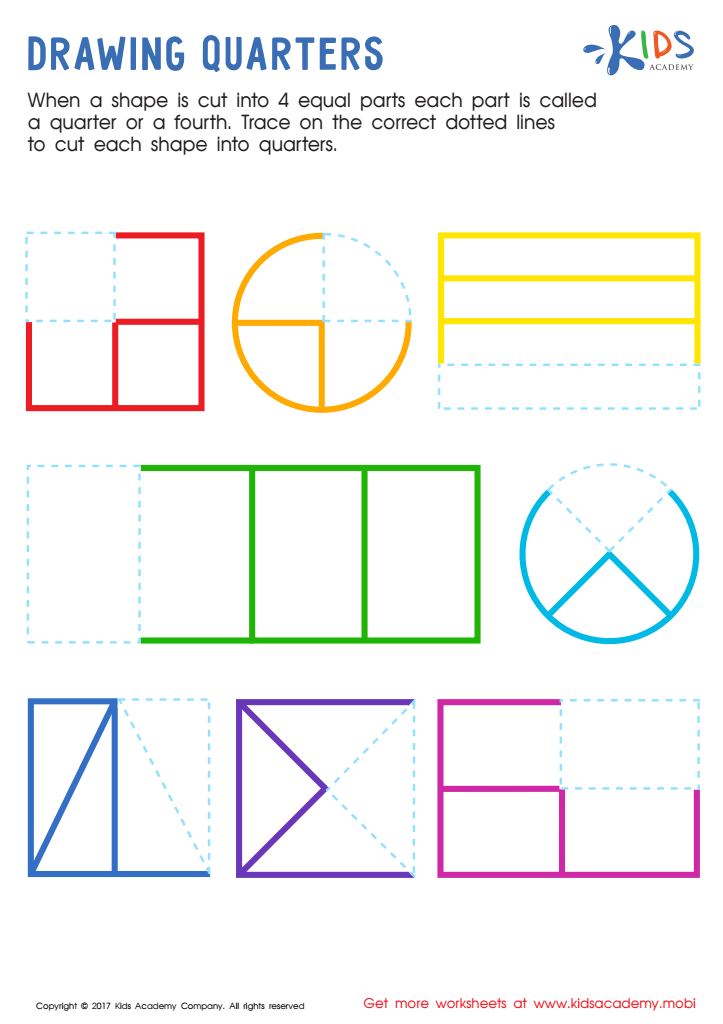

Drawing Quarters Worksheet
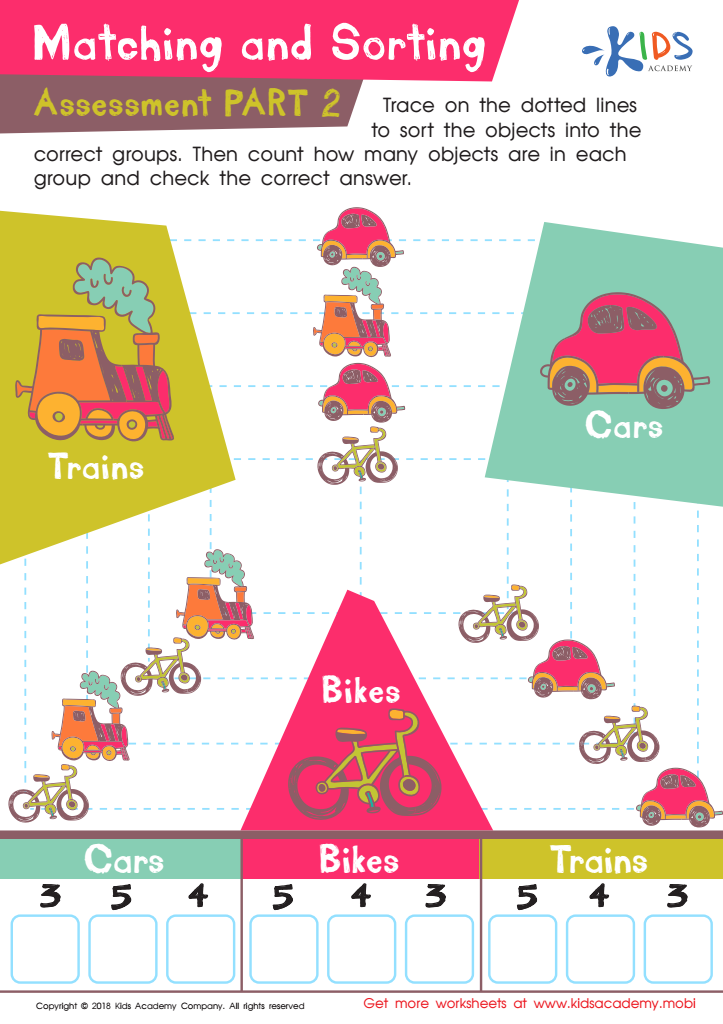

Matching and Sorting for Kindergarten: Assessment 2 Worksheet
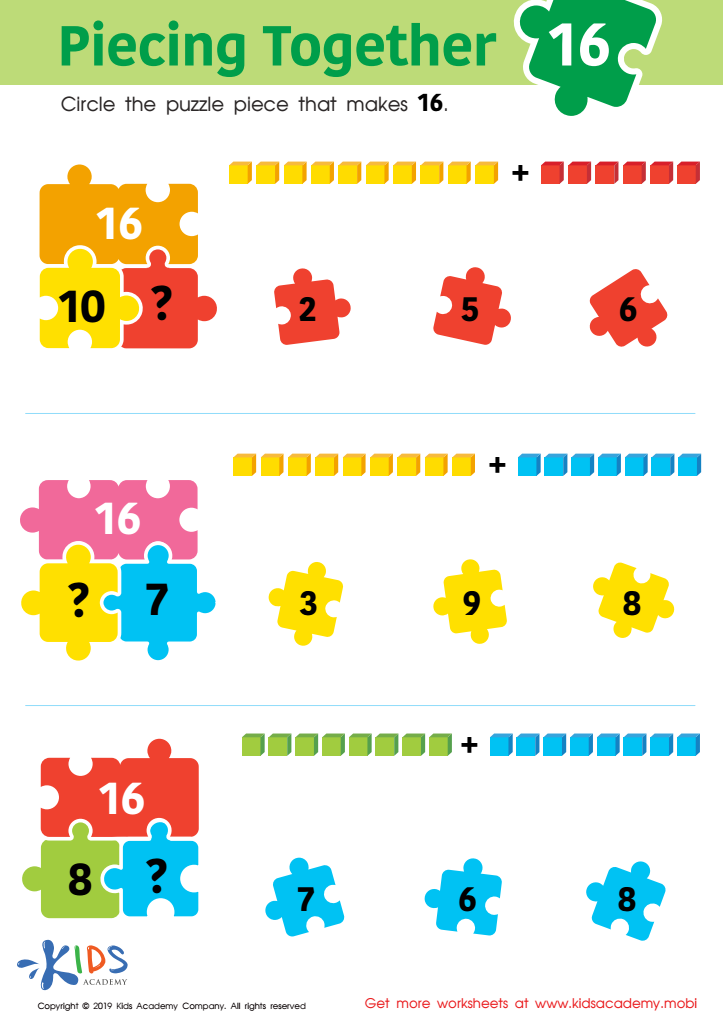

Piecing Together 16 Worksheet
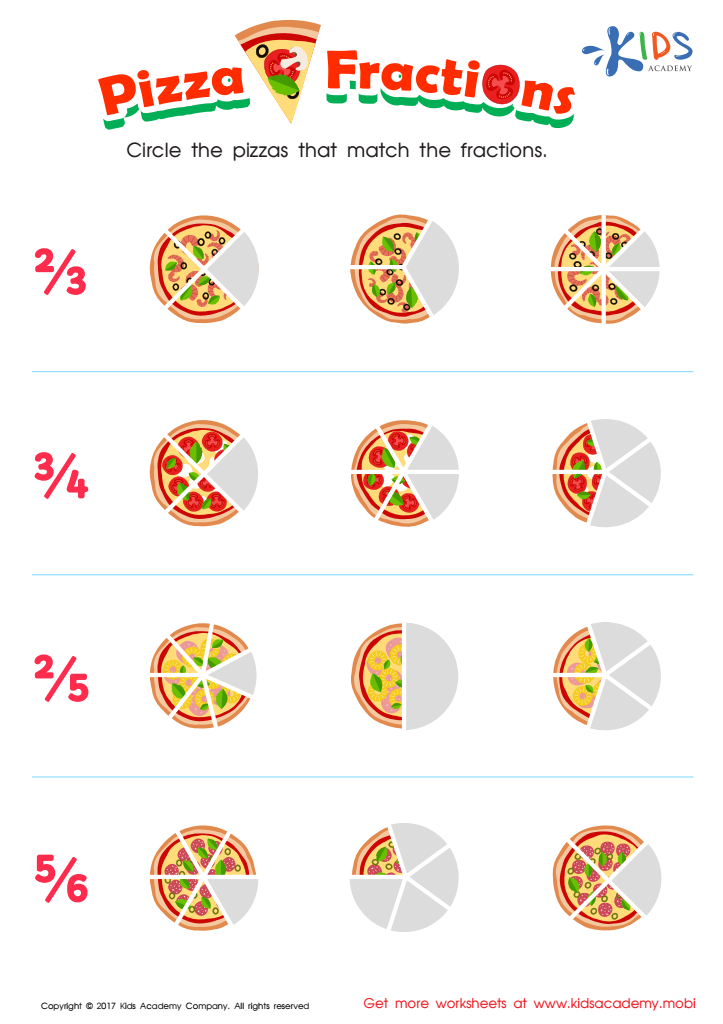

Fractions: Pizza Printable
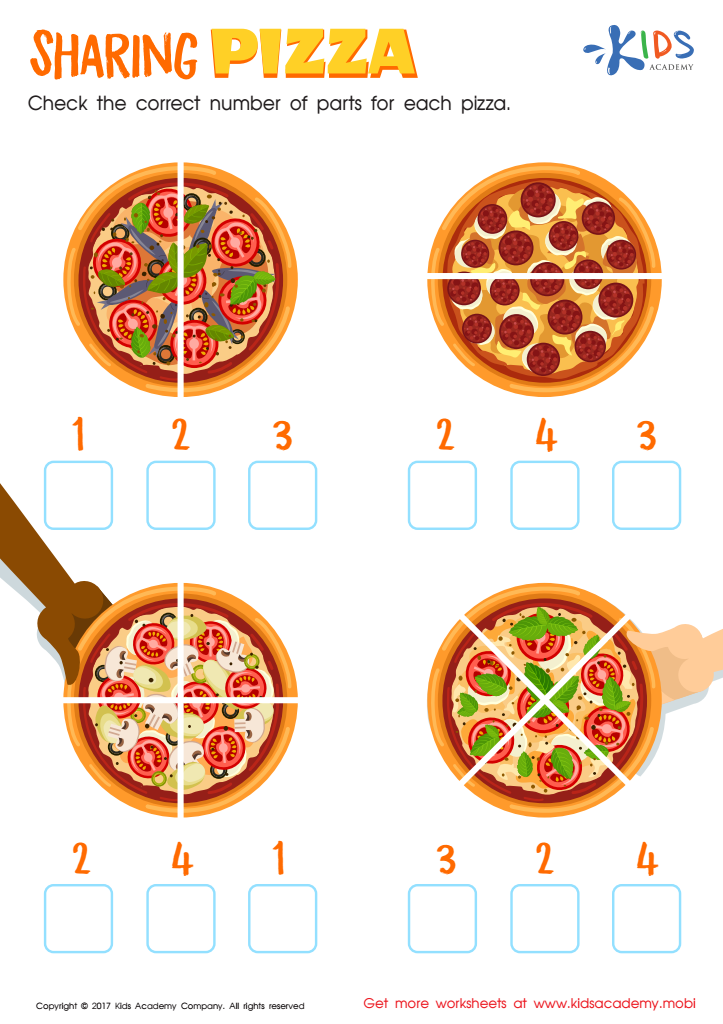

Sharing Pizza Worksheet
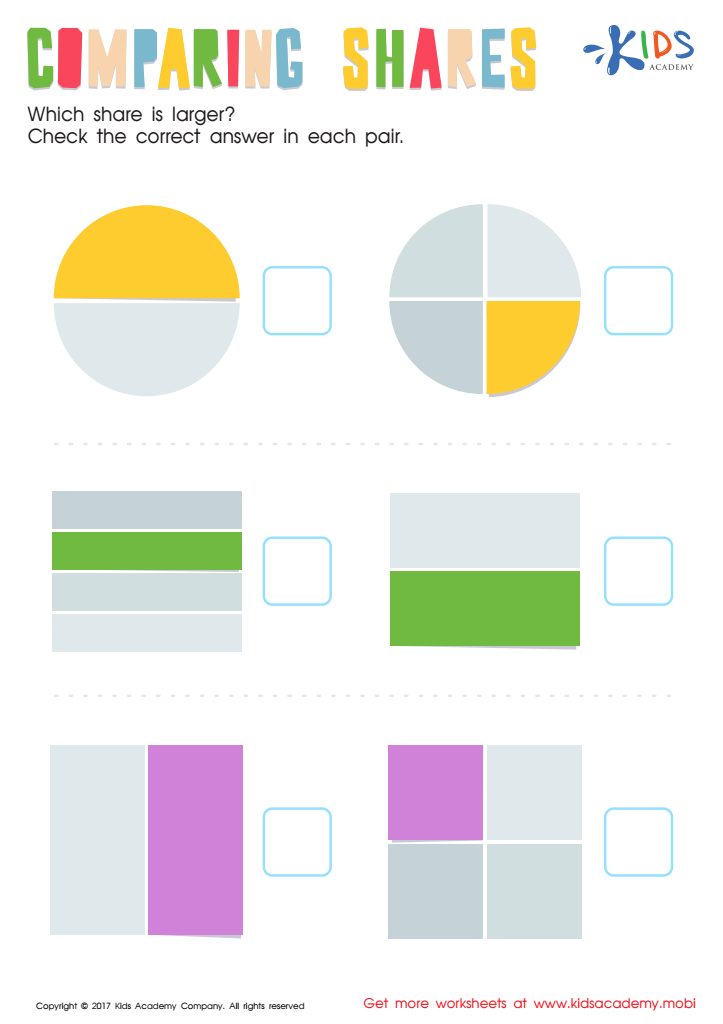

Comparing Shares Worksheet
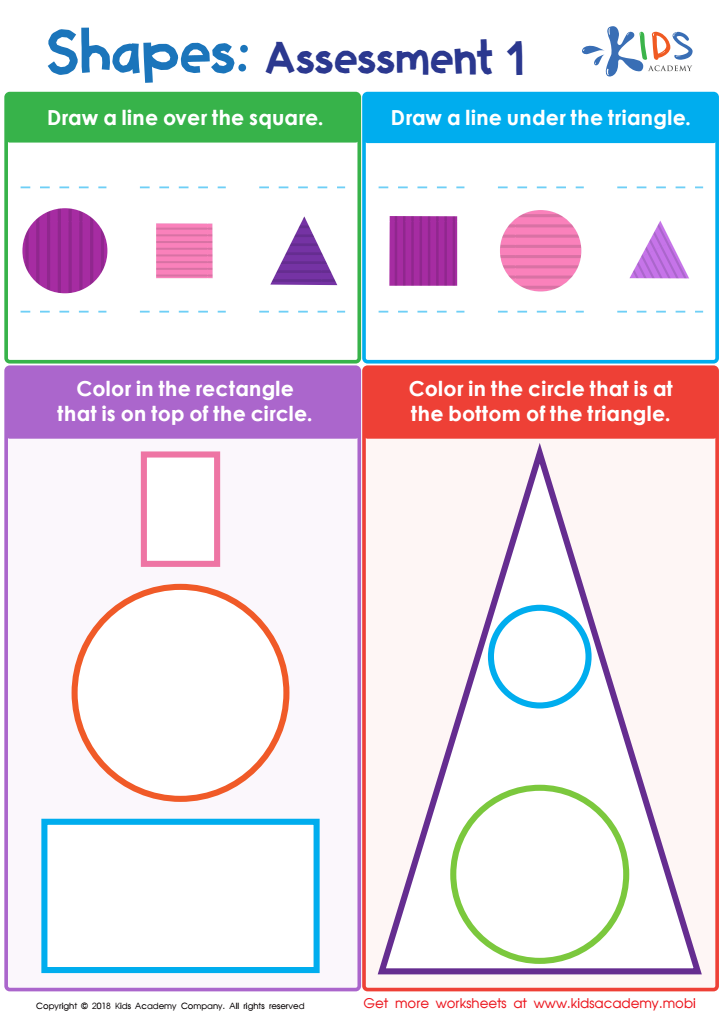

Shapes: Assessment 1 Worksheet
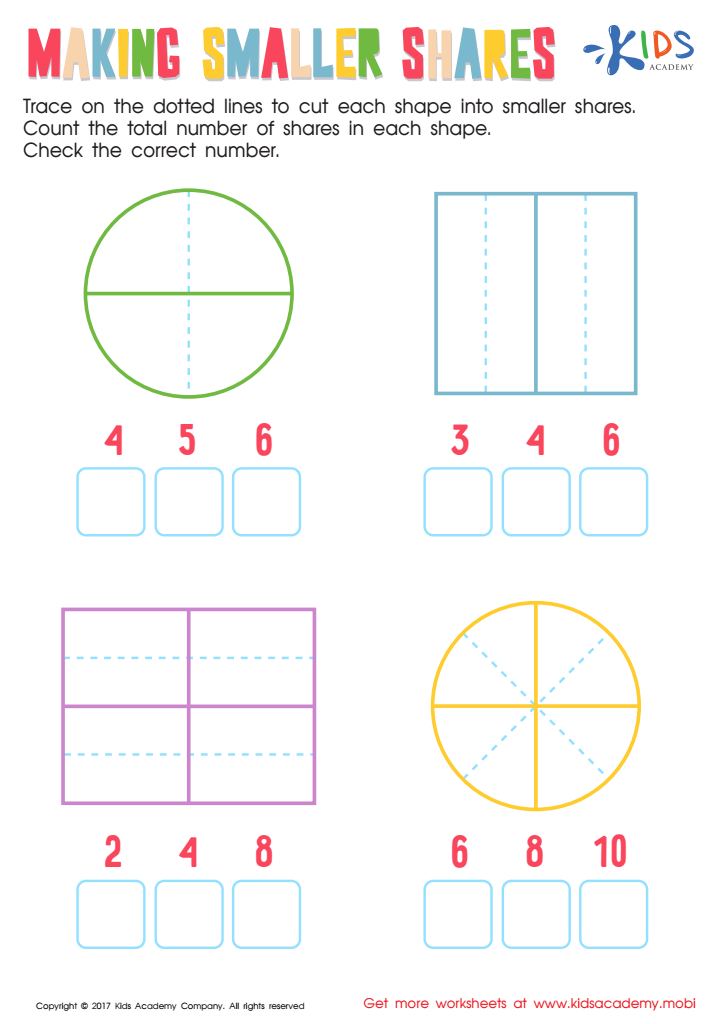

Making Smaller Shares Worksheet
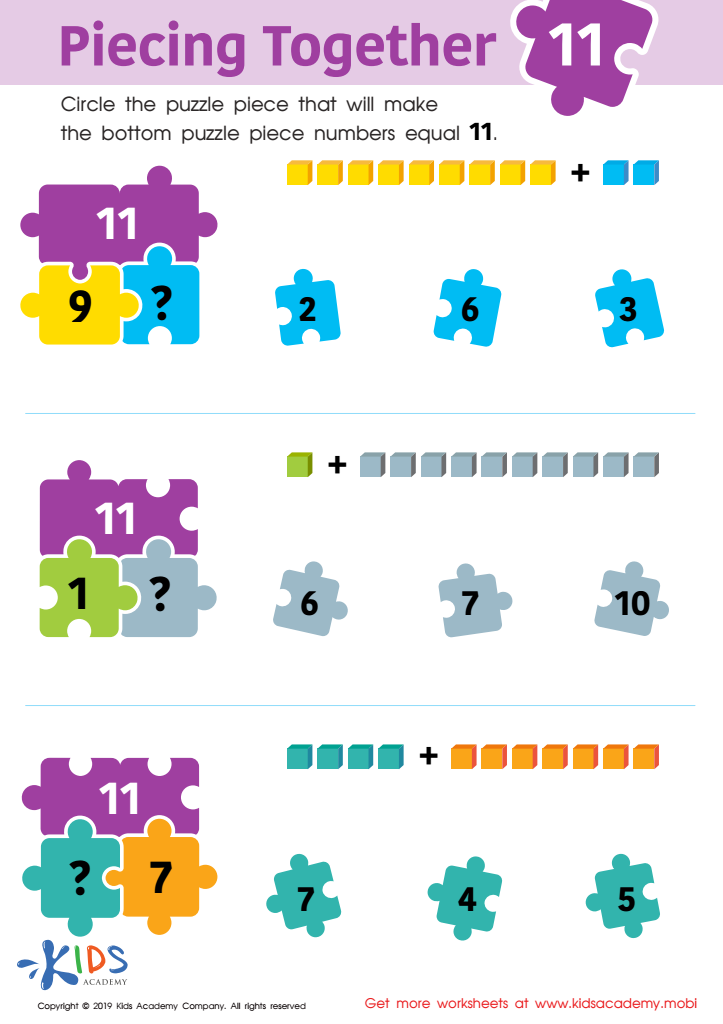

Piecing Together 11 Worksheet
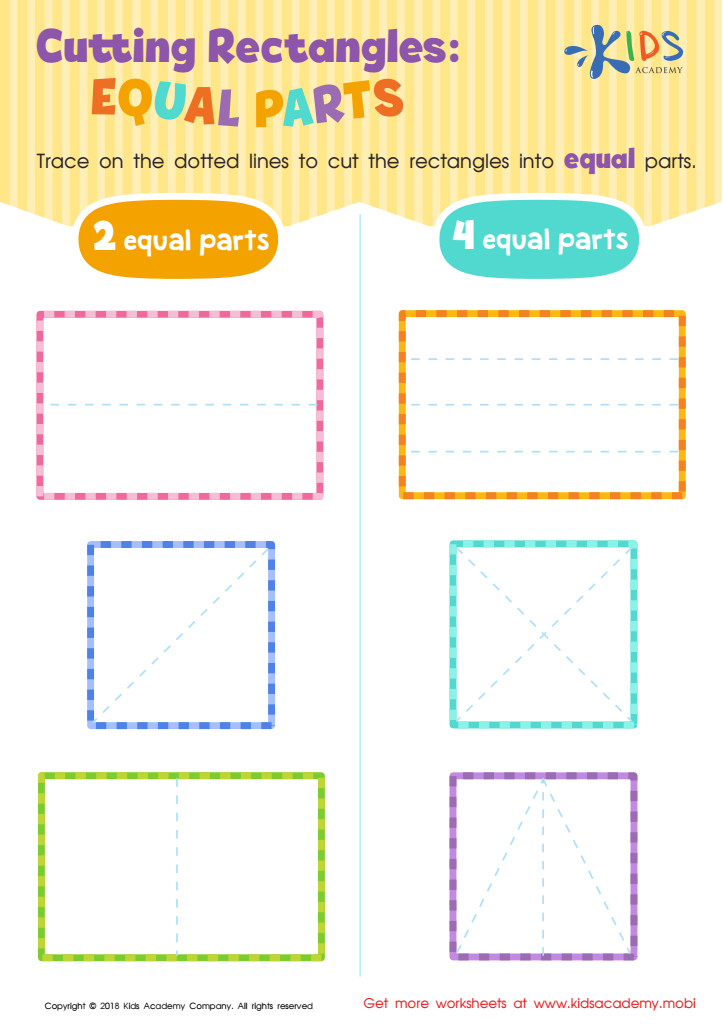

Cutting Rectangles: Equal Parts Worksheet
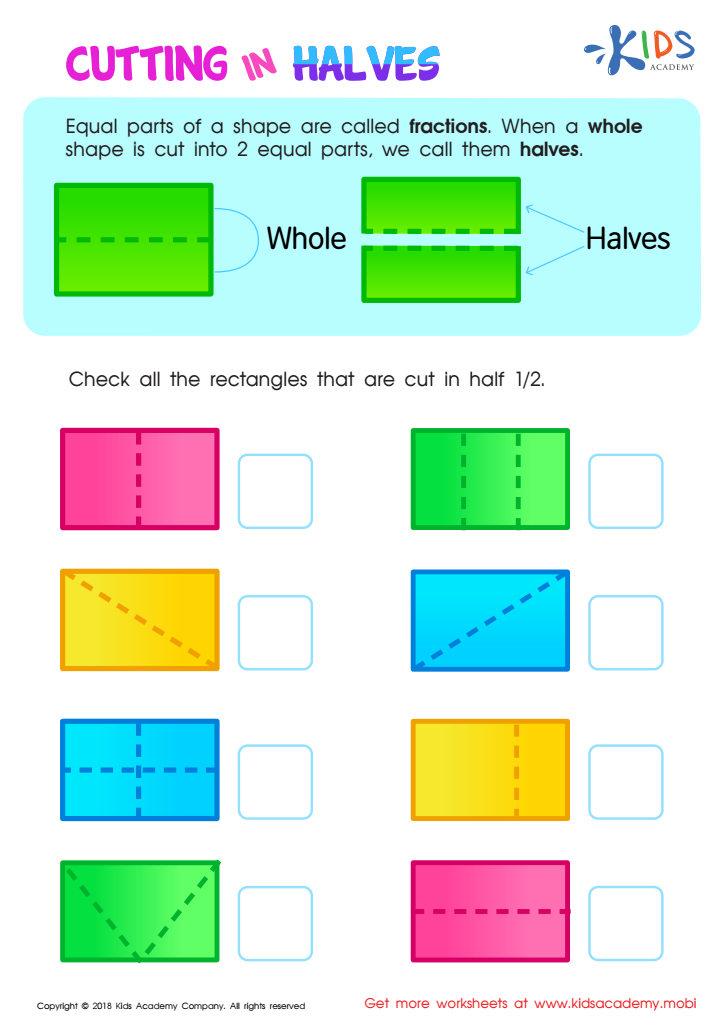

Cutting in Halves Worksheet
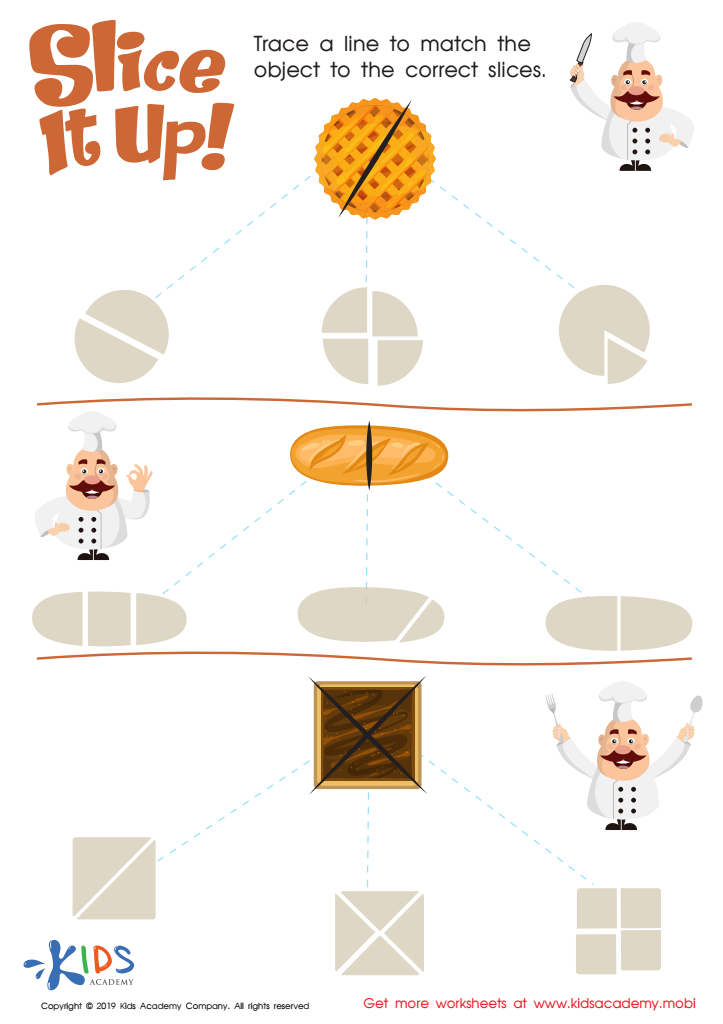

Slice It Up Worksheet
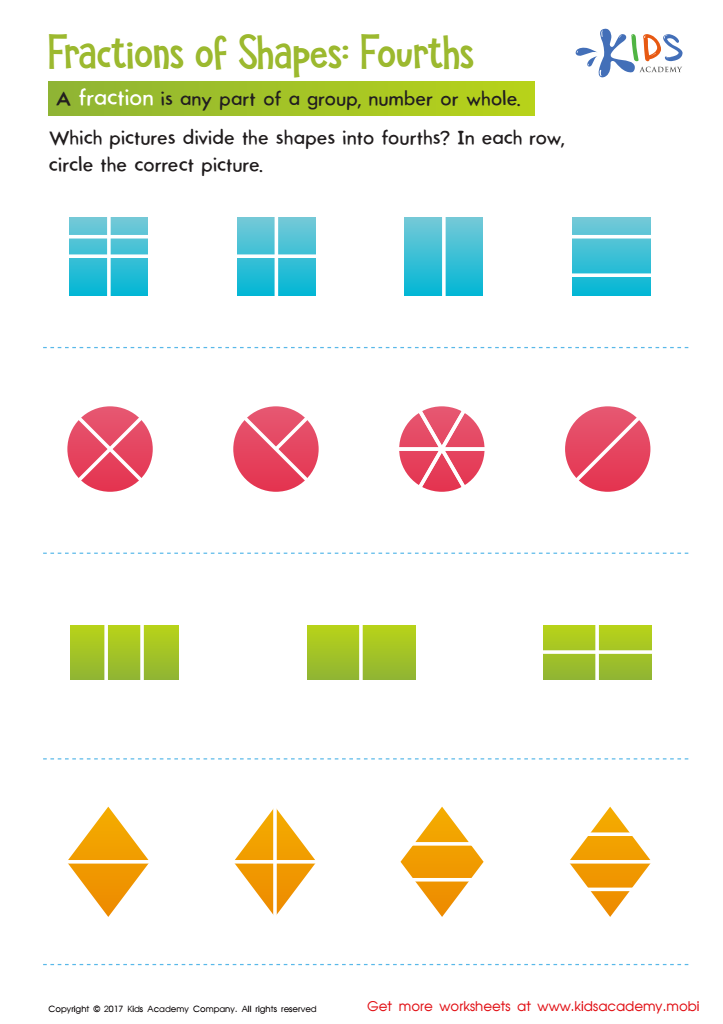

Fractions of Shapes Worksheet
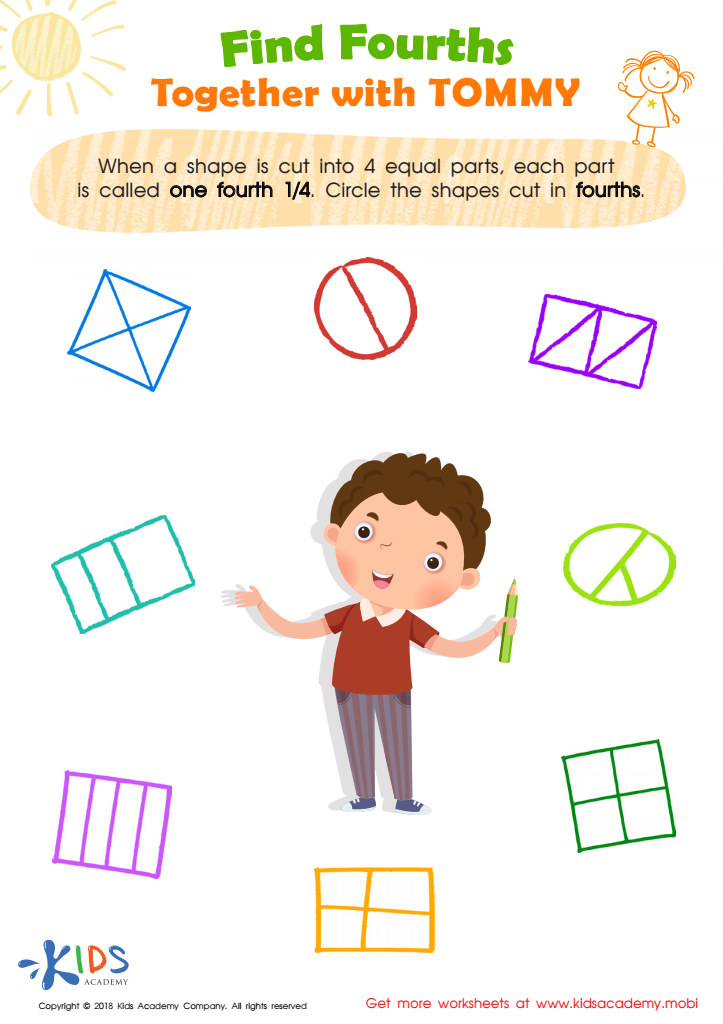

Find Fourths Together with Tommy Worksheet
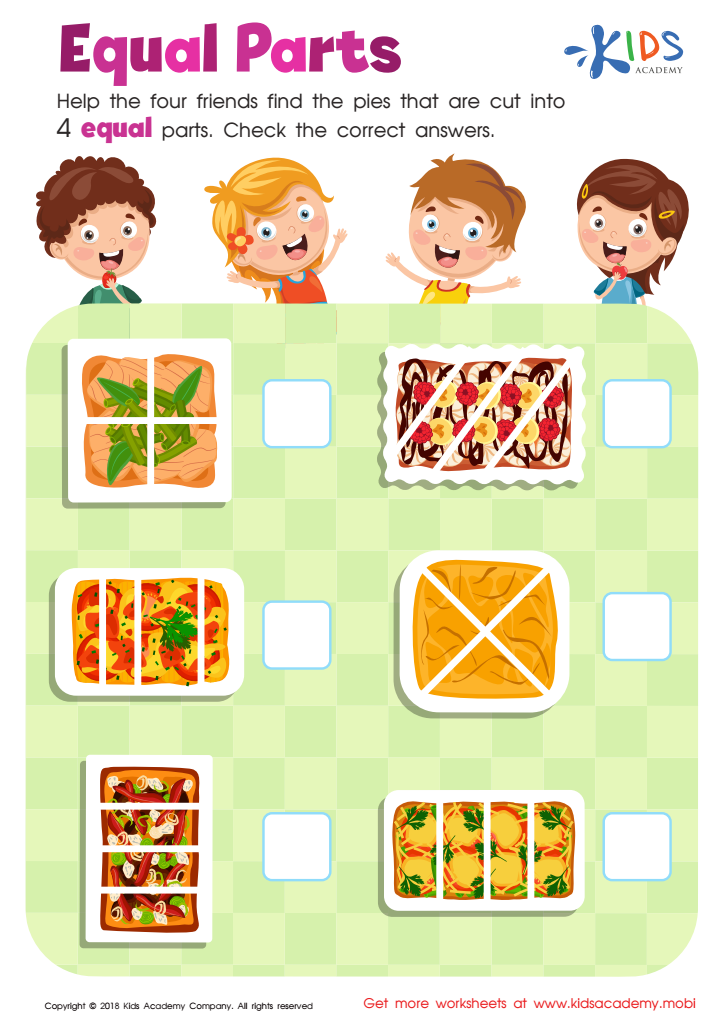

Equal Parts: Food Worksheet
Understanding fractions at the age of six is crucial for several reasons. First, it lays the foundation for more complex mathematical concepts. When children grasp the basics of fractions, they are better prepared for advanced topics like ratios, percentages, and algebra, which are essential for higher-grade math. Early exposure to fractions also enhances their problem-solving skills, enabling them to tackle real-world situations involving portions, such as dividing food or sharing treats.
Additionally, cognitive development benefits from learning fractions because it encourages children to think more abstractly and improves their understanding of proportional reasoning. Activities involving fractions can make learning more interactive and fun, thereby increasing student engagement and enthusiasm for math.
Moreover, understanding fractions helps in developing a strong number sense. Recognizing parts of a whole is a building block for other mathematical operations and enhances logical thinking. By mastering these concepts early on, children gain confidence in their mathematical abilities, which can translate into a lifelong appreciation of the subject.
For parents and teachers, integrating fractions into early learning provides a comprehensive math education and stimulates young minds. Early mastery of fractions sets the stage for academic success and opens doors to various opportunities in science, technology, engineering, and math (STEM) fields later in life.
 Assign to My Students
Assign to My Students





.jpg)








